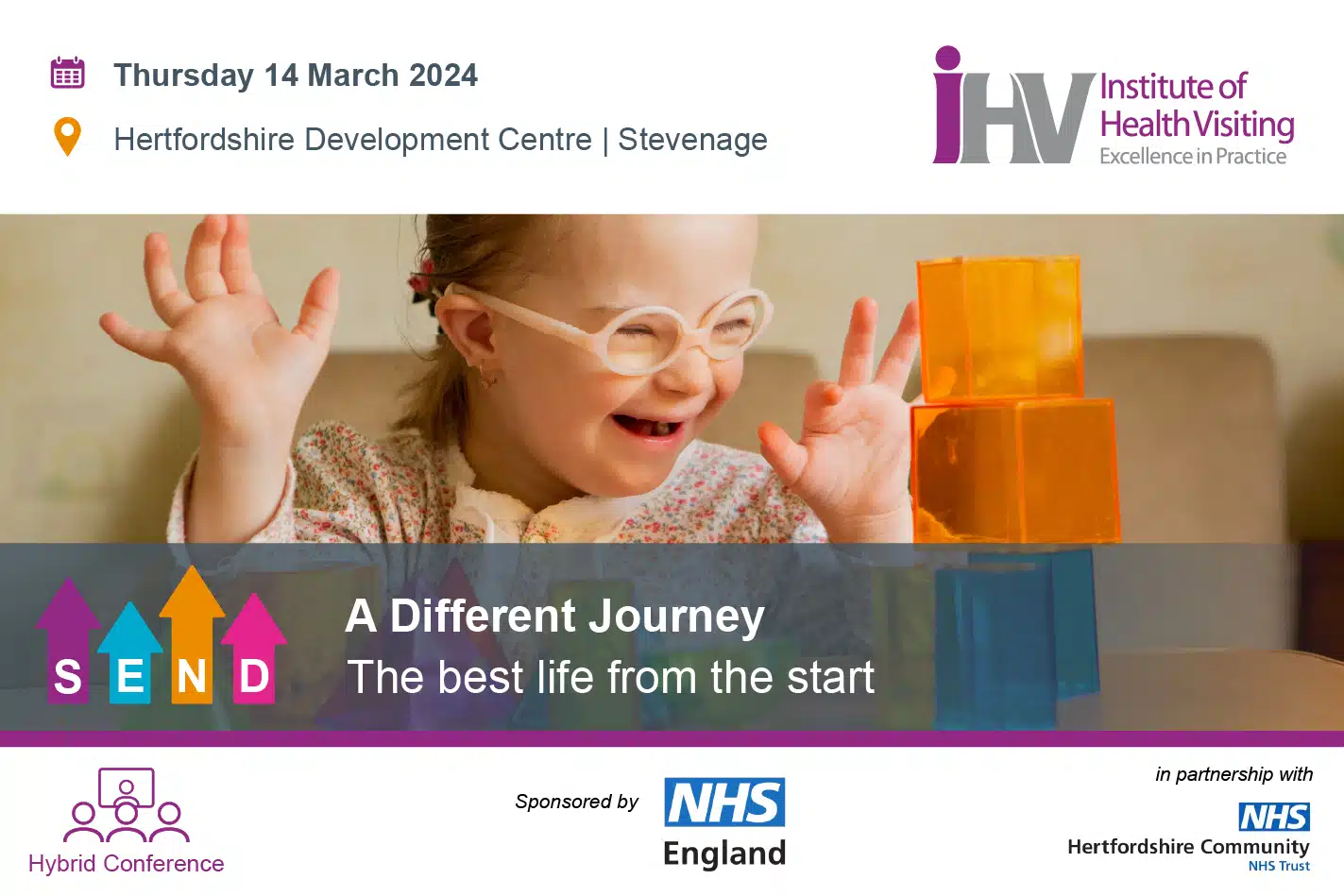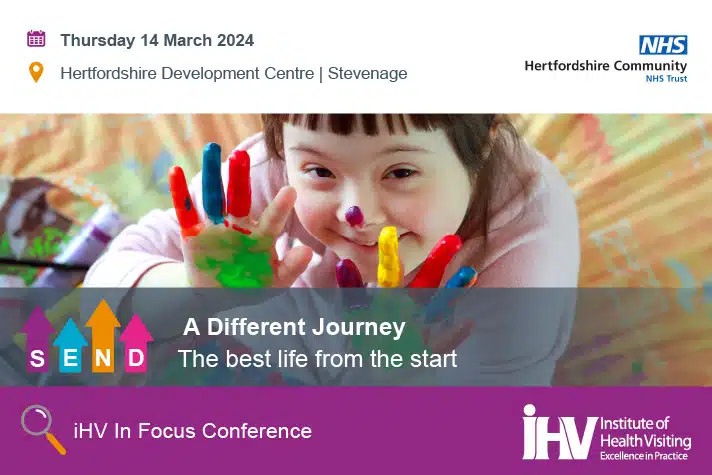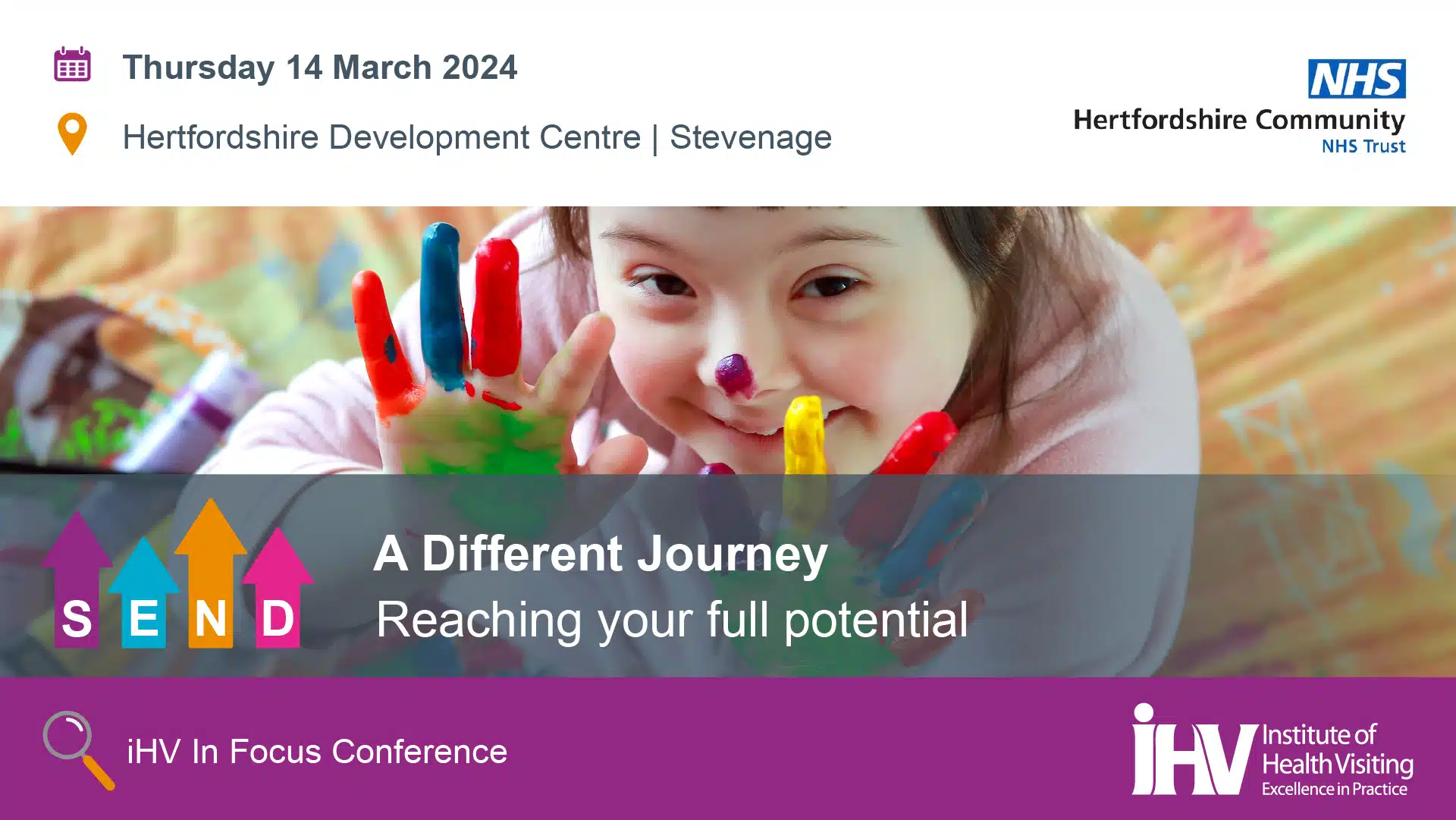We are proud to announce that our iHV SEND conference “A Different Journey: The Best Life from the Start”, on 14 March 2024, has been sponsored by NHS England (NHSE). This really is a conference not to be missed! We have a fantastic line-up of high-profile national speakers who will be presenting on the current SEND priorities and ways to improve outcomes and reduce inequalities for babies and young children with SEND.
Leanne Gelder, Specialist Advisor of Quality Improvement from NHS England says:
‘We are very much looking forward to supporting this SEND event that the Institute of Health Visiting are running. As part of our work at NHS England to reduce restrictive practices in health care, we will be running a breakfast session to better understand the use and impact of restrictive interventions for people with learning disabilities and mental health conditions during pregnancy and the earliest years of life. The session will consider how we can work collaboratively to reduce this practice and improve patient experience’.
Our conference programme provides the latest thinking on SEND, with updates on national policy, research and examples of evidence-based practice. It is a great opportunity to learn about a wide range of SEND topics from experts in their field, including:
- Dame Rachel de Souza, Children’s Commissioner for England – who will provide an overview of the current landscape for children with SEND across England, exploring the problems, solutions and recommendations to government.
- Professor Monica Lakhanpaul, Professor of Integrated Community Child Health, UCL Great Ormond Street Institute of Child Health – who will be speaking about her ground-breaking work on children underserved, unheard and falling through the gaps.
- Professor Simon Kenny OBE, National Clinical Director for Children and Young People at NHS England – who will provide a national update on NHS plans to improve joined-up care for children with SEND through integrated care.
Our conference programme aims to equip practitioners working with families with babies and young children with SEND with new knowledge and skills to support better early identification of need and joined up care. It will be beneficial for frontline practitioners (including health visitors, early years practitioners, Community Nursery Nurses and team members), as well as service leads and commissioners looking to improve the care and support offered to families to improve outcomes. The conference programme includes a wide range of “hot topics” for SEND including:
- Overview of national picture and SEND policy
- Improving seamless support through Integrated Care Systems and pathways
- Reaching underserved communities with SEND
- Neurodiversity in the early years
- Understanding Cerebral Palsy
- Supporting a child with a cleft palate
- Understanding Down’s Syndrome
- Safeguarding is everyone’s business
- Enhancing communication
- Health visiting and SEND – opportunities to improve practice
Our conference sponsor, NHS England will be sharing their national work on least restrictive practices, including women who have experienced restrictive interventions during pregnancy.
To see our full SEND conference programme and speakers, click here.
All ticket prices are heavily subsidised to help as many people to attend as possible. The conference is being held at the bespoke conference venue of the Hertfordshire Development Centre, Stevenage which is easily accessible via excellent road and rail links just north of London – online ticket options are also available (note: this option includes selected streams broadcast – see programme for details).
Don’t miss out on this wonderful opportunity to enhance your health visiting practice and make a difference to babies and children with SEND.






